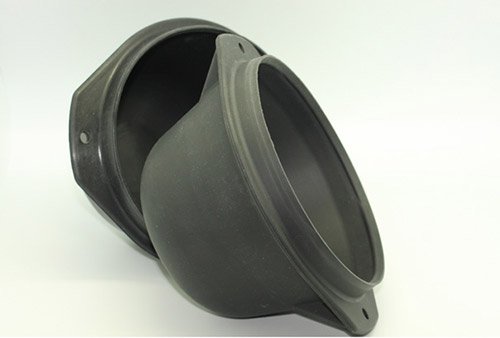
What Is the Difference Between Vulcanized and Molded Rubber?
In the diverse world of rubber manufacturing, comprehending the nuances between different types of rubber can greatly benefit various industries. At Clark Rubber & Plastic, we often encounter questions about the differences between vulcanized and rubber molding. Let’s delve into these two processes to help you better understand their unique attributes and applications.
Vulcanized Rubber
Vulcanization is a chemical process used to enhance the properties of natural rubber. This process involves heating raw rubber in the presence of sulfur and other chemicals, which helps create cross-links between polymer chains. Vulcanized rubber offers increased strength, elasticity, and resistance to various factors like temperature, chemicals, and wear. One of the most notable applications of vulcanized rubber is in the automotive industry, where it’s used for tire manufacturing. Its durability and resistance to extreme conditions make it an ideal choice for creating tires that withstand various driving terrains and weather conditions.
Rubber Molding
Molded rubber refers to the process of shaping rubber into specific forms and designs. This method involves placing uncured rubber into a mold cavity and applying heat and pressure to cure and shape it. Rubber molding is known for its precision in creating complex shapes and designs, typically used in the automotive and appliance industries. At Clark Rubber & Plastic, we utilize rubber molding techniques to produce parts with intricate designs and tight tolerances. Our molded rubber products find applications in various fields, offering functionality and aesthetic appeal.
Comparing Vulcanized and Molded Rubber
While both vulcanized and molded rubber have unique advantages, the key difference lies in their processing techniques and end-use applications. Vulcanized rubber enhances the physical properties of rubber, making it more durable and resistant. In contrast, molded rubber focuses on precise shape specifications for rubber to fit certain design requirements. The choice between these two rubber forms ultimately hinges on the desired attributes of the final product.
Vulcanized rubber is a viable option for items that must withstand harsh conditions and stress, while molded rubber is preferred for components needing specific shapes and contours. At Clark Rubber & Plastic, we leverage both these processes, providing our clients with tailored solutions to their industrial applications.
Tailored Solutions
Consider the example of custom automotive seals and gaskets for tailored solutions, an application used at Clark Rubber & Plastic. We often recommend vulcanized rubber for these components due to its resistance to oils and high temperatures. Our team works closely with automotive manufacturers to design seals and gaskets that precisely fit their engines or door frames, providing optimal performance and longevity. This approach in selecting and shaping rubber can meet the automotive industry’s stringent requirements.
Your Partner in Rubber Molding
At Clark Rubber & Plastic, we understand the importance of choosing the right type of rubber for your specific needs. Whether it’s vulcanized rubber or molded rubber for intricate designs, our team is equipped with the technology to deliver solutions. Contact us today to learn more about our rubber and plastic manufacturing capabilities and how we can support your industry’s unique needs.
